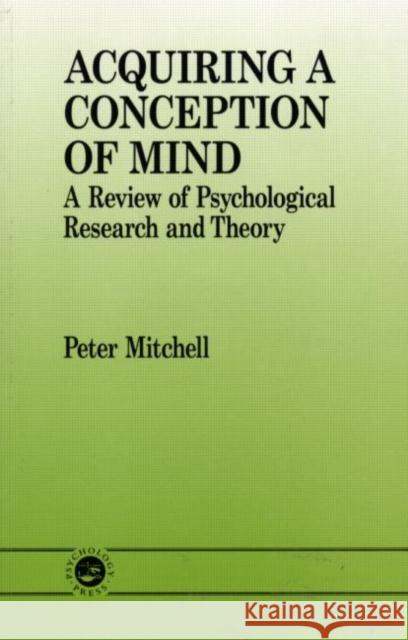Acquiring a Conception of Mind: A Review of Psychological Research and Theory » książka
Acquiring a Conception of Mind: A Review of Psychological Research and Theory
ISBN-13: 9780863777370 / Angielski / Miękka / 1996 / 230 str.
It seems the mind has evolved into such a powerful form that we are able to go beyond knowing the world and move towards knowing the mind itself. Being able to comprehend the mind permits smooth social interaction, since it allows us to anticipate the future actions of those around us. The apparently effortless quality of social co-ordination belies the complex process of conceptualization and inference that is actually at work. The odyssey of childhood, especially in the early years, presents a topic for investigation and speculation.
A purpose of this book is to provide a thoroughly readable in-depth review of recent findings and theories about the development of understanding mind. In preparing this, a major goal was seen as composing text that is appealing in itself as a piece of writing. This book covers development from infancy to adulthood, and also considers related disorders of development especially autism. It goes beyond the narrow focus on the preschool years typical of most writings on the topic.
One of the main themes in the book concerns the role of language and communication in development. Language could serve as a tool that helps the child to think more in the abstract and the hypothetical, once removed from reality. Being able to communicate with language virtually means that we are able to hear the thoughts of those around us. We hear what they think from what they say. Communication could thus provide a major catalyst in promoting the development of an understanding of mind. Perhaps it is no coincidence that children with autism who supposedly have an impaired understanding of mind also have impairments in language and communication.











